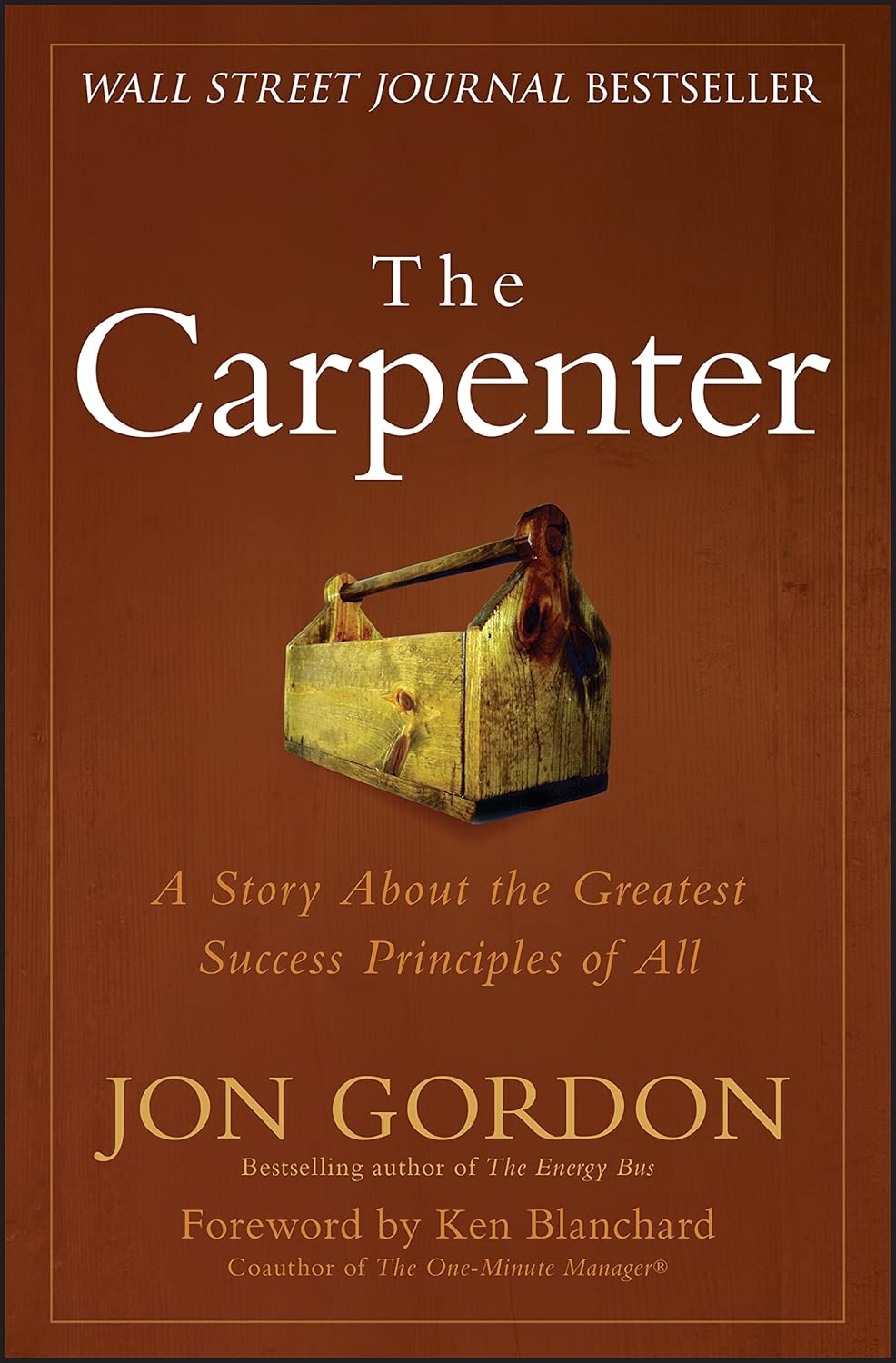About this deal
In a chapter about technology Gopnik tries to be a Yuval Noah Harari, but makes a poor futurologist. Calling young people ‘digital natives’ is enough to trigger my bullshit-meter. And people don’t talk to the whole world on the web — far from. As the Carpenter shares his wisdom, Michael attempts to save his business in the face of adversity, rejection, fear, and failure. Along the way he learns that there’s no such thing as an overnight success but there are timeless principles to help you stand out, excel, and make an impact on people and the world. The goal in life is not to accumulate things, but to give your life away. And the best way to give your life away is to help others build things that make a difference. Love, Serve, and Care. The 3 greatest success strategies of all. The Way. The key is to being an extraordinary leader is to focus on multiply others one at a time. If you want to win, don't focus on winning, focus on becoming a champion. J. has a different viewpoint on failure, saying that it can be a gift if you are willing to learn, grow, and improve because of it. It gives you the opportunity to evaluate how bad you really want something. He says to Michael, “Whatever path failure guides you toward, it is always meant to give you a big serving of humble pie that builds your character, gives you perspective, grows your faith, and makes you appreciate your success later on.”
I bought this book because I loved this piece in the Wall Street Journal. Unfortunately, I think that piece boils down much of what is interesting in the book itself. I find Gopnik's persona--part enthusiastic grandmother, part knowledgeable researcher--very appealing, so I never found the book difficult to read. But it did feel, in spite of its brevity, a little meandering and somewhat meager in its central insights. The analogy that gives the book its title--parents need to be like gardeners, creating sustaining environments for their children and enjoying them for their own development, including its surprises, rather than like carpenters, who follow sets of rules to produce something according to a blueprint--is the most vivid and helpful insight here. There's a long section on play and how important play is for child development and for a number of other mammals as well. This might surprise some readers, but perhaps I am so convinced of this point already that aside from articulating more clearly what play gives children (theory of mind, the ability to problem solve and to produce counterfactual possibilities), this section of the book was not as much of a revelation. Gopnik does point out that when we try to "teach" children things, they learn less--that they should be given open territory to explore in rather than have an adult trot out a map, and that was extremely interesting, particularly when she described some of the experiments her lab has run on this idea. Another section on technology felt riddled with truisms (we always worry about new technologies, children are always early-adopters, we have no idea what that will mean for the future, but usually, some older technologies are retained alongside the new devices that dominate culture).
Questions to Ask a Carpenter
How Jon weaves stats, anecdotes, quotes, and info into the story line. For example he talks about a tribe of runners who were cut off from civilization and would run 40 miles a day to get food, pass on info, etc. the older the got the stronger, faster, and greater endurance they had. Remember that we all fail. It’s what we do after we fail that determines what we build in the long run. This is common advice in the professional development world; you will become what you feed your mind and I firmly believe it to be true. J. gives Michael a list of positive affirmations to say on a daily basis:
In the end we won’t be measured by our bank accounts, sales numbers, wins and losses, or the size of the company we built, but by the difference we made in people’s lives—and we make a difference through relationships.
Richard Carpenter Conducts ‘Carpenters With The Royal Philharmonic Orchestra’
From the world’s foremost expert on power and strategy comes a daily devotional designed to help you seize your destiny. Negative thoughts are the nails that build a prison of failure. Positive thoughts will build you a masterpiece.” 3. Talk to Yourself
This point is illustrated when J. is talking to Michael about the importance of designing the entertainment center before he starts to build. Through this dialogue, he starts to discuss how it’s important to live our lives in the same manner. He begins to ask Michael some compelling questions:
To M.M. Keeravani and Chandrabose...
On the one hand, Gopnik early on suggests that there are too many parenting books. On the other hand, well, literally, what am I holding? Elisabeth lives in Preston, Lancashire with her family. She loves the north of England, setting most of her stories in the area – including the novel she is writing at the moment. I bought this book after reading 'Meet the parenting expert who thinks parenting is a terrible invention’ from The Correspondent — which appealed to me. Parents shouldn’t try so hard to mould the perfect child, but provide a safe space in which the child can grow up and explore and make mistakes. (This also matches how my parents raised me.) And that article gripped me in a way the book never did.
 Great Deal
Great Deal 